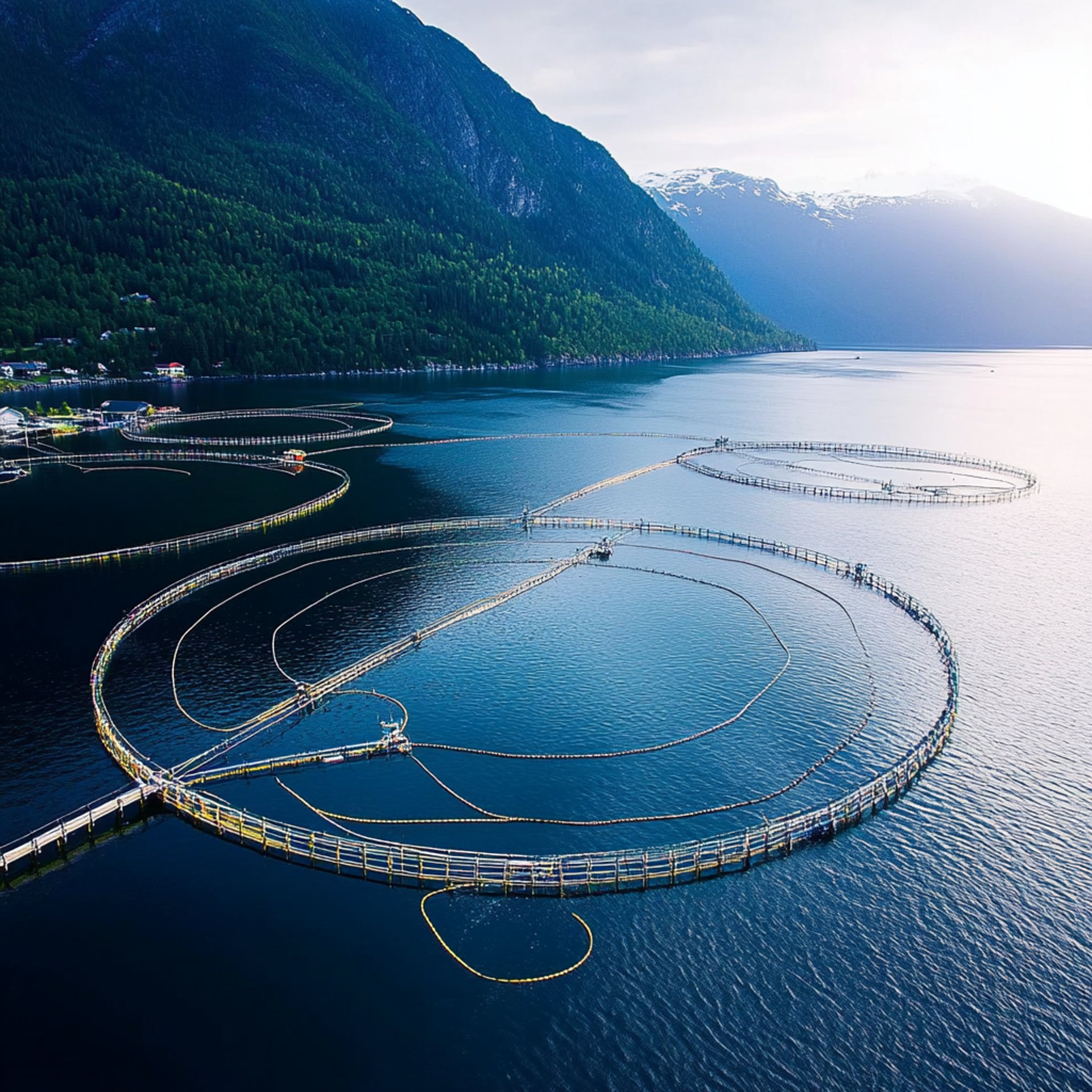
How Aerbio is transforming the animal feed industry
We rely on the animal feed industry to keep producing enough healthy protein for a growing population. With the average adult recommended to consume up to 35% of their daily calories through protein and the world’s population expected to grow to 9.8 billion people by 2050, the animal feed industry is only going to become more important.
However, our current ways of producing protein are unsustainable. Animal farming, fishing and often exploitative agricultural practices lead to deforestation and ocean biodiversity loss. Furthermore, climate change is making producing food through traditional farming methods more difficult. As extreme weather events such as flooding, droughts and heatwaves become more common, it will become harder to grow crops through arable farming to feed our growing population.
To transform our food system so that it is more sustainable and secure, we must address animal feed. Globally, feed represents at least 78% of the carbon footprint of farmed chicken and over 67% of salmon. Moreover, growing crops such as grains, soybeans and wheat to feed livestock rather than feed people directly entails additional avoidable deforestation and emissions. Transforming the animal feed industry is the key to continue nourishing our growing population while protecting our planet.
It is possible to develop a natural protein food chain that’s radically different, that’s aligned with global population needs, with ecosystem preservation and with climate goals. Aerbio works with feed partners to radically transform how we feed the world, providing a healthy protein with a lower carbon footprint. This is how.
Aerbio is redefining protein production for animal consumption
Our team has developed a proprietary gas fermentation technology to grow a natural, healthy protein, Proton. Fermentation is a natural process that we have used for millennia to produce a vast variety of food – from cheese, wine and beer to yogurt, kimchi and kombucha. Traditionally, fermentation requires sugar to start the chemical process. At our current consumption levels the necessary sugar farming leads to vast deforestation. Every minute, we cut down an area of Amazon rainforest the equivalent size of a football field, destroying the richest home to biodiversity on the planet and our largest natural carbon sink in the process.
In our gas fermentation process, Aerbio replaces sugar as the feedstock for fermentation with food-grade CO2 gas. Aerbio’s gas fermentation is essentially using carbon dioxide that would otherwise heat up our atmosphere to create food. The other gas required is hydrogen. Aerbio can harness the power of green hydrogen, produced using renewable energy, to fuel the fermentation.
The entire process takes place inside a carefully controlled bioreactor, which isn’t impacted by changes in season, weather, or daylight so can be located anywhere in the world. The ability to produce Proton anywhere in the world, without taking up much space, can make the animal feed industry resilient to climate change and geopolitical instability. It can also cut shipping costs and food miles, simplifying an otherwise extremely complex and inefficient supply chain.
Currently undergoing rigorous regulatory and safety testing trials, Proton is safe for consumption by fish and livestock. We will share the results of our latest salmon study soon.
Compared to soy protein – one of the most common protein ingredients in animal feed – Proton carries an 84% lower water footprint and 97% lower land use. The efficiency of our process and use of sustainably sourced feedstocks means Proton offers up to a 90% smaller carbon footprint compared to traditional protein sources. In short, Proton can help solve the animal feed’s sustainability and security problems.
Meeting the needs of the animal feed industry with Proton
Proton offers a superior nutritional profile over traditional protein used in animal feed. Proton is healthy and natural, produced using food-grade CO2. Its bespoke nutritional profile, which includes a complete amino acid profile and approximately 70% protein content, reduces the need for additional supplements often required by conventional animal feed.
By offering an up to 90% smaller carbon footprint compared to traditional protein sources, using Proton will help the feed industry meet its emissions targets, which stand at a 30-50% reduction by 2030, as outlined by the EU.
Join us on our journey to build a sustainable food system
By redefining protein production for animal consumption, Aerbio will transform our food system to nourish a growing population while protecting our planet.
Are you an investor? Contact us to discuss investment opportunities.
Are you in the aquafeed or monogastric feed industry?
We’re looking for partners to co-develop Proton for a full product-market fit.
Contact us to book a partnership discovery call.

